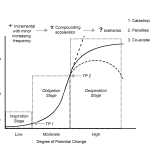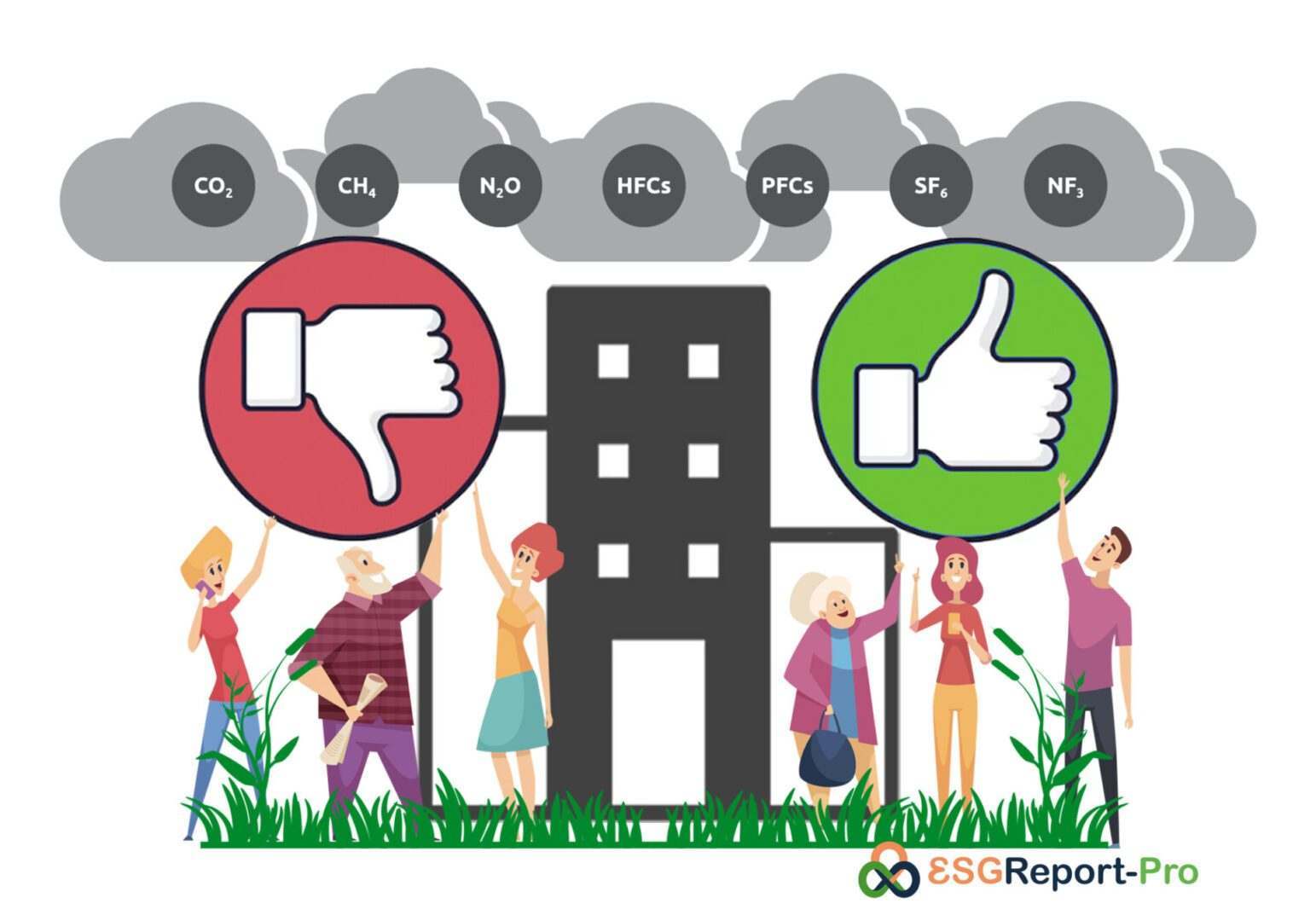How Low is Net-Zero?
“The European Union bans ‘misleading’ green claims relying on carbon offsets” recently made world-wide headlines. Terms such as ‘climate neutral’ or ‘climate positive’ that rely on offsetting will be banned in the EU by 2026 as part of a crackdown on misleading environmental claims. Fair enough, planting a tree doesn’t make oil drilling or car manufacturing cleaner but it does raise a tricky question – how low is net-zero? Is offsetting even viable anymore?
The global commitment to combat climate change has led to the widespread adoption of net-zero greenhouse gas (GHG) emissions targets by businesses, governments, and organisations. The goal of achieving net-zero emissions reflects the urgency of mitigating climate change impacts. However, this aspiration is accompanied by a dilemma: the reality that complete elimination of emissions may be unattainable. I thought it a good idea to explore some of the challenges and risks associated with the goal of net-zero GHG reporting by addressing the importance of accurate reporting and navigating the complexities of emission reduction strategies.
Defining Net-Zero Emissions
First up, what do I mean by net-zero because that can be a little flaky as a concept. Net-zero emissions refer to the equilibrium between the amount of greenhouse gases emitted and the amount removed or offset, resulting in no net increase in atmospheric greenhouse gas concentrations. Achieving net-zero requires reducing emissions as much as possible before negating or offsetting any remaining emissions through nature-based solutions like reforestation, or carbon capture and other forms of carbon removal. However, a dilemma arises from the challenges associated with completely eliminating emissions from certain sectors, for example agriculture, leading to a nuanced interpretation of what constitutes ‘net zero’.
Technological and Sectoral Challenges
Certain industries, such as aviation, heavy manufacturing, and agriculture, face significant challenges in achieving complete decarbonisation. The lack of economically viable technologies to eliminate emissions from these sectors raises questions about the feasibility of achieving absolute zero emissions. The dilemma lies in the tension between ambitious targets and the practical limitations of existing technologies and infrastructure.
Does Tourism Save?
Let’s take the example of travel and tourism. The airline industry has taken a bashing for being a heavy contributor to GHG emissions and it certainly added to criticism by flying empty planes around the planet during Covid to maintain landing privileges. Their response is a call-to-arms that ‘tourism saves’ (see Can we Solve the Transitioning Puzzle of Business Travel?), which seeks to justify travel as an opportunity to redistribute wealth and skills to the global south. Despite being far-fetched and demonstrably exaggerated, the travel industry, including business travel pundits jumped on the band-waggon. However, there is some truth in ‘tourism saves’ and that is very likely to leave a residual GHG negative balance on the ESG report. Do we hold the poorest countries to the same level of GHG accountability as the rich? Should we expect the same level of ambition from everyone? I hazard a guess that the international development sector wouldn’t be too happy to see a chunk of budget being absorbed by offsetting rather than poverty elimination.
The Role of Offsetting and Nature-Based Solutions
Offsetting emissions through nature-based solutions, like afforestation and reforestation, has become a crucial component of net-zero strategies. However, the effectiveness and permanence of these solutions are debated, introducing uncertainty into net-zero calculations. And just to go back to our friends in the international development sector, it’s curious why GHG emission offsetting (either through nature-based solutions or removal) isn’t hard-wired into every development project, I mean, what’s the point of helping folks somewhere if you’re contributing to making things worse for everyone? But maybe that’s another article.
The fact is that relying heavily on offsetting without substantial emission reductions leads to a ‘net-zero illusion’, where the actual reduction in emissions falls short of the reported net-zero target. So, it is understandable where the EU is coming from with its ban, but it does expose a can of worms.
‘How Low is Net Zero?’ – The Challenge of Ambiguity
To address the urgency of climate action, many organisations and governments have set ambitious net-zero targets. While these targets signal a commitment to sustainability, the lack of clear and universally accepted standards for what constitutes net zero introduces ambiguity. Companies may interpret and implement net-zero strategies differently, leading to variations in the level of ambition and effectiveness across industries and regions.
Measuring and reporting emissions involves complex methodologies, and different organisations may use diverse standards and protocols. This variability creates challenges in assessing the accuracy and comparability of net-zero commitments. The absence of a standardised approach to measurement and reporting introduces ambiguity in determining the actual progress towards net zero and evaluating the credibility of reported achievements.
Additionally, emission accounting involves defining the scope and boundaries of what is included in net-zero calculations. Companies may choose different scopes based on their interpretation of responsibility, with Scope 1, 2, and 3 emissions representing direct, indirect energy-related, and other indirect emissions, respectively. Decisions about what to include or exclude in these scopes can significantly impact the perceived success of net-zero strategies and the credibility of reported outcomes. Without clear direction on how to evaluate and establish boundaries to emissions calculations we will forever be challenged by ambiguity.
Greenwashing and the Risks
With laws come fines. Inaccurate or misleading net-zero reporting poses significant risks, including the potential for greenwashing. Greenwashing erodes public trust and can lead to reputational damage, worse still, it can lead to increasingly severe fines and punitive measures. Stakeholders, including consumers, investors, and regulatory bodies, increasingly demand transparency and accuracy in reporting to ensure that net-zero commitments are genuine and backed by tangible actions.
Governments and regulatory bodies are progressively recognising the importance of robust climate action. Inaccurate net-zero reporting may result in legal and regulatory consequences. Companies failing to meet their reported targets are likely to face fines, legal action, or other penalties for non-compliance. As governments worldwide strengthen climate-related regulations, the accuracy of net-zero reporting becomes critical for navigating the evolving regulatory landscape. Don’t be surprised if there isn’t a hungry cohort of young lawyers waiting to cut their teeth on sustainability-related corporate litigation.
Just Like Financial Disclosures?
Just imagine if companies could offset financial losses from their balance sheet by simply apologising to their bankers and investors? The similarities between financial and ESG reporting are extensive, but with ESG reporting it isn’t only by shareholders and investors that an organisation is held to account, it’s the wider community and the planet itself.
Accordingly, investors are increasingly factoring ESG considerations into their decision-making processes. Inaccurate net-zero reporting can mislead investors and shareholders, and lead to misallocation of capital. Companies failing to deliver on promised emission reductions may experience financial repercussions, including reduced market valuation, increased borrowing costs, shareholder disruption, and challenges in attracting responsible investors.
Inaccurate net-zero reporting can undermine the accountability of organisations to their stakeholders and the broader society. If companies overstate their achievements without tangible emissions reductions, the global effort to combat climate change will be hindered. Lack of progress towards genuine net-zero targets can contribute to a sense of complacency, diverting attention and resources away from effective climate action measures.
Strategies for Accurate Net-Zero Reporting
Addressing the net-zero reporting dilemma requires standardised methodologies and transparency on a scale hitherto never imagined. Developing universally accepted standards for net-zero reporting, including consistent emission accounting methodologies and scope definitions, is essential for ensuring accuracy and comparability. This is already happening around the world and there is a surprising and encouraging level of cooperation between standard-setting organisations.
However, it is unsurpassed transparency that will enable stakeholders to assess the legitimacy of net-zero claims and hold organisations accountable for their commitments. It is our individual duty to act as guardians and stewards of culture, tradition and our planet that ultimately will drive accuracy, or not.
Setting Realistic Targets and Roadmaps
The path forward begins with transitioning to lower and lower emissions. This involves setting ambitious yet realistically achievable targets based on the current state of technology and available resources. Herein lies more ambiguity, but ask any elite athlete how realistic their goals are and they will talk to you of dreams. Those who achieve their dreams are the ones prepared to find a way to fulfil their every ambition – why shouldn’t organisations be the same?
Clear roadmaps outlining the steps to achieve net-zero goals provide stakeholders with a transparent view of the organisation’s emission reduction journey. Realistic targets and transparent roadmaps enhance credibility and reduce the risk of overambitious or unrealistic commitments. They also invite participation from the wider community. Continuous articulation of your journey towards zero emissions is vital for broader stakeholder engagement.
Independent Verification and Assurance
If net-zero is achievable, we need to be able to believe in it as well as prove it. Third-party verification and assurance play a crucial role in validating the accuracy of net-zero reporting. Independent auditors can assess the reliability of emission reduction data, ensuring that reported achievements align with established standards and methodologies. The involvement of external experts enhances the credibility of net-zero claims and provides stakeholders with confidence in the accuracy of reported outcomes. External experts need to have deep knowledge of the sector as well as remain abreast of innovations and new technologies, they need to be agents of change for companies.
The dynamic nature of climate change and evolving technologies necessitates continuous improvement and adaptability in net-zero strategies. Again, external experts can lead the process when internal processes run dry of ideas. Organisations should remain open to revising targets and approaches based on scientific advancements, emerging technologies, and changing circumstances. Transparent communication about adjustments to net-zero strategies demonstrates a commitment to ongoing improvement and aligns with the principles of accuracy and accountability.
How Low Will You Go?
Undoubtedly, the pursuit of net-zero greenhouse gas emissions is a critical element in addressing the global climate crisis. However, the net-zero reporting dilemma poses challenges rooted in the complex reality of achieving absolute emission reductions. The ambiguity surrounding “how low is net zero?” and the risks associated with inaccurate reporting underscore the need for standardised methodologies, ultra-transparency, and systemic continuous improvement. Organisations must navigate the delicate balance between ambitious targets and practical limitations, ensuring that net-zero commitments are genuine, achievable, supported by tangible actions and clearly demonstrable. Accurate net-zero reporting is not only crucial for mitigating risks but also for fostering trust among stakeholders, driving meaningful climate action, and contributing to the collective effort to build a sustainable and resilient future.





